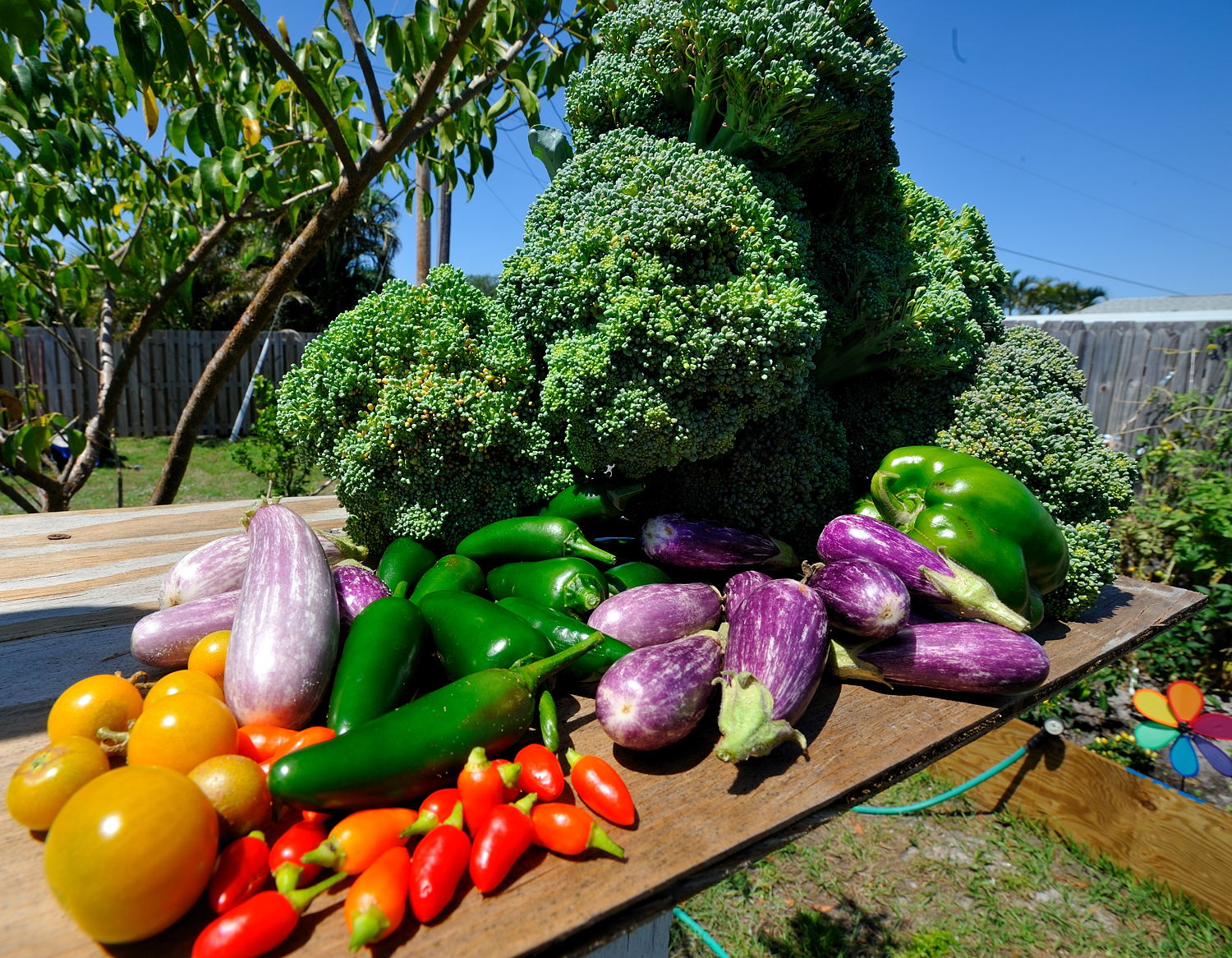Vegetable Gardening
Benefits of Vegetable Gardening
Vegetable gardening has many benefits, including:
- Produces fresh and healthy produce
- Saves money on groceries
- Reduces carbon footprint by promoting local produce
- Provides physical activity and stress relief
- Improves mental health and wellbeing
Steps to Start Vegetable Gardening
Step 1: Choose a Location
The first step in starting a vegetable garden is to choose a location. Look for a spot in your yard that gets at least six hours of sunlight per day and has well-draining soil. Avoid areas that are prone to flooding or have poor drainage.
/harvested-vegetables--gardening-gloves-and-hand-cultivator-garden-576798993-5b419bba46e0fb00374ee206.jpg)
Step 2: Prepare the Soil
Once you have chosen a location, it is time to prepare the soil. Remove any weeds, rocks, or debris from the area and loosen the soil with a garden fork. Add compost or other organic matter to improve the soil quality, if necessary.
:max_bytes(150000):strip_icc()/vegetable-gardening-in-small-spaces-1403451-containers-38fba88c8dd1449596b756304cae86cb.jpg)
Step 3: Choose Your Vegetables
Choose vegetables that are well-suited to your climate and soil type. Some easy-to-grow vegetables for beginners include tomatoes, lettuce, beans, and peppers. Decide on the amount of space you have and plan accordingly.
Step 4: Plant Your Vegetables
Follow the planting instructions for each vegetable, including the recommended spacing and depth. Water the plants regularly and fertilize as needed. Mulch around the plants to help retain moisture and prevent weeds.

Step 5: Maintain Your Garden
Maintain your garden by watering regularly, removing weeds, and monitoring for pests and diseases. Harvest your vegetables when they are ripe and enjoy the fresh, healthy produce!
Advantages and Disadvantages of Vegetable Gardening
Advantages
- Produces fresh and healthy produce
- Saves money on groceries
- Reduces carbon footprint by promoting local produce
- Provides physical activity and stress relief
- Improves mental health and wellbeing
Disadvantages
- Requires time and effort to maintain
- May attract pests and diseases
- Dependent on weather and climate
- May require additional resources, such as water and fertilizer
- May not produce a significant yield, depending on the size of the garden
Tips for Successful Vegetable Gardening
To ensure a successful vegetable garden, follow these tips:
- Choose the right location with good soil and sunlight
- Select vegetables that are well-suited to your climate and soil type
- Plant at the right time and follow planting instructions
- Maintain your garden by watering, weeding, and monitoring for pests and diseases
- Harvest vegetables when they are ripe
FAQs
Q: How much space do I need for a vegetable garden?
A: The amount of space you need depends on the number and type of vegetables you want to grow. As a general rule, each plant requires a certain amount of space to grow properly. Check the planting instructions for each vegetable to determine the recommended spacing.
Q: What vegetables are best for beginners?
A: Some easy-to-grow vegetables for beginners include tomatoes, lettuce, beans, and peppers.
Q: How often should I water my vegetable garden?
A: The frequency of watering depends on the type of soil and climate. In general, vegetables need about an inch of water per week. Water deeply and less frequently to encourage deeper root growth.
Q: How do I prevent pests and diseases in my vegetable garden?
A: To prevent pests and diseases, keep your garden clean and remove any dead or diseased plants. Use organic pest control methods, such as companion planting or natural insecticides. Monitor your plants regularly and treat any problems promptly.
Conclusion
Vegetable gardening is a fun and rewarding hobby that can provide you with fresh and healthy produce. By following these steps and tips, you can start your own vegetable garden and enjoy the many benefits it provides.
